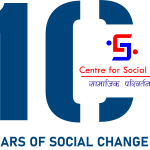About the People's Power Blog
"Civil resistance matters, as it shapes societies, nations, and our world”
Centre for Social Change (CSC) is proud to present “People’s Power BLOG”– a trailblazing blog series that aims to provide a knowledge-sharing platform for grassroots activists, educators and scholars from all over Nepal and South Asia who are keenly interested in the study and practice of civil resistance and nonviolent movement.
Through identification and elevation of acute voices in the field of civil resistance study and practices, the blog series aspires to project a deeper coverage and analysis of nonviolent movements from the region. Development of a common platform to share knowledge and experiences is anticipated to build a vibrant regional network of academics, practitioners and grassroots campaigners working or interested in the field of civil resistance and popular movements supporting long term benefits of the strategic nonviolent action and experiences.
“People’s Power” blog series aims to provide readers the insight on the dynamics and direction of nonviolent movements and its process of evolution from past to the most recent times. The comprehension further highlights the lessons learned and courses altered along the way that conveys implications for all of us, whether we are on the ground or dedicated to a particular movement.
Inspired from the success of the blog platform- ‘Minds of Movement’ managed by International Centre for Nonviolent Conflict (ICNC), CSC aspires to recreate a similar platform gratifying a regional scope.
Thus, we announce an open call to interested individuals to contribute their blog articles and support the creation of a knowledge sharing portal on contemporary civil resistance movements in South Asia. CSC largely encourages reflections on diverse nonviolent movements that have occurred in Nepal and elsewhere in the South Asian arena, especially on the context of women movement, workers movement, farmers movement, Dalit and minority rights movement, landless movement, youth and student movement, and so on.
©2021 Centre for Social Change, Kathmandu
